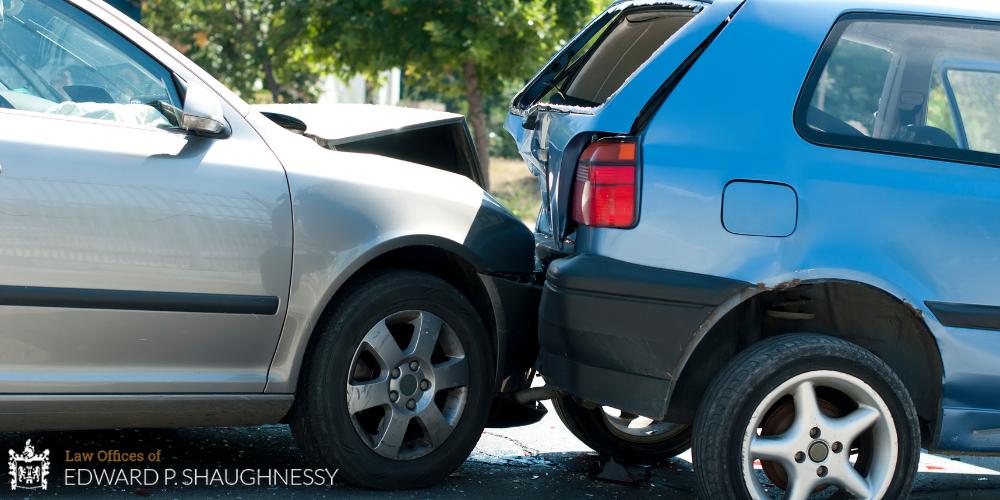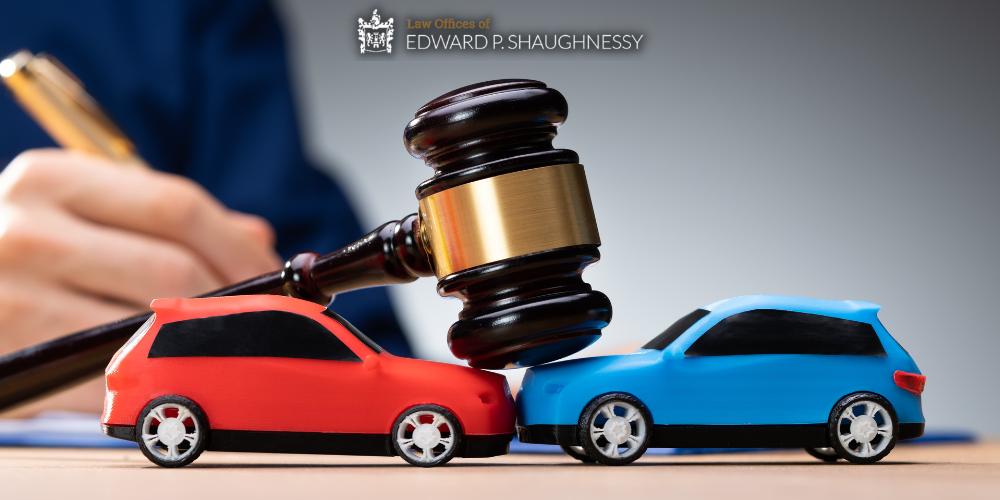Easton Car Accident Lawyer
Home » Practice Areas » Personal Injury Lawyer Easton, PA » Easton Auto Accident Lawyer » Easton Car Accident Lawyer
Practice Areas
Easton car accident lawyer, Edward P. Shaughnessy, has extensive experience with car accident claims in the Lehigh Valley area. As a seasoned car accident attorney in Easton, PA, he brings a wealth of knowledge to his personal injury law firm and hope for car accident victims seeking financial compensation for losses caused by negligence.
If someone else’s negligence caused your motor vehicle accident, you may have a valid car accident claim to help recover compensation for your losses. When you hire the Eason car accident lawyers at The Law Offices of Edward P. Shaughnessy to handle your car accident claim, they will investigate the details of the accident, negotiate with insurance companies, protect your legal rights, and seek to obtain a fair settlement on your behalf.
Contact an Easton car accident lawyer at 610-258-9955 to schedule a free consultation today. Our car accident attorneys work on a contingency fee basis, so clients won’t pay any legal costs unless their car accident claim is successful.
What to Do After a Car Accident in Lehigh Valley
Accident victims must seek immediate medical assistance after a collision. Your Easton auto accident lawyer will reference your medical records throughout the personal injury litigation, especially when negotiating with insurance companies.
Common Causes of Car Accidents in Pennsylvania

Drunk Driving
Drunk driving remains a leading cause of car accidents in the United States. These accidents often result in catastrophic injuries, lifelong disabilities, or fatalities due to the reckless nature of driving while intoxicated. Our Easton catastrophic injuries lawyer has extensive experience with these claims.
Distracted Driving
Our Easton car accident lawyers understand the complexities of distracted driving car accident cases. If you’ve been in a car crash where the other driver was distracted and at fault for the accident, our Easton distracted driving injury lawyer can help you seek compensation through a car accident claim.
Aggressive Driving Behaviors
Our Easton personal injury lawyers understand how dangerous behaviors can provoke unexpected car accidents, causing serious injuries or even death. If you’ve been injured by an aggressive driver, contact our Easton speeding car accident attorney.
Vehicle Defects
Occasionally, auto defects such as faulty brakes, airbags, or tires can cause a car crash. Our Easton personal injury lawyers handle car accident claims and defective product cases. Contact one of our Easton product liability lawyers to learn how you can recover compensation.
Types of Car Accidents in Pennsylvania

Rear End Collisions
Our Easton rear-end accident lawyer can help you seek compensation for serious injuries and non-economic damages, such as pain and suffering in these car accidents.
Head On Collisions
Often caused by wrong-way driving or veering across the centerline, head-on collisions can result in fatal or severe injuries such as TBIs, spinal cord damage, or organ damage. Contact one of our car accident lawyers in Easton, PA to see if we can help you obtain a fair settlement.
T-Bone Collisions
T-bone accident victims often suffer more severe injuries due to the less protected side of the vehicle taking the brunt of the force. Contact an Easton T-Bone accident attorney if you were hurt in this type of accident.
Multi-Vehicle Accidents
Multi-vehicle accidents can happen on busy highways and can lead to a chain reaction of collisions. For multi-vehicle accidents, there may be multiple injured parties involved, each with their own insurance company, as well as extensive property damage. You’ll need an experienced Easton car accident lawyer for a multi-vehicle car accident claim.
Rollover Accidents
Rollover accidents in Easton, PA are often the result of high speeds, sharp turns, or collisions. A car accident lawyer in the Lehigh Valley area can be instrumental in helping victims secure compensation for medical bills, ongoing treatment, property damage, and more.
Common Car Accident Injuries in the Lehigh Valley Area

Whiplash Injuries
Our personal injury lawyers understand how seemingly minor injuries can cause major health issues. Our Easton whiplash attorneys can help victims recover fair whiplash injury compensation by negotiating with the insurance company or taking the case to court, if necessary.
Traumatic Brain Injuries
A car accident brain injury can result from even mild impacts, leading to headaches, cognitive issues, and sensory problems, and in severe cases, these injuries can have life-altering effects or even death. These victims must arm themselves with strong legal representation from an Easton traumatic brain injury lawyer.
Spinal Cord Injuries
The extent of spinal cord injuries can vary widely, but they often result in significant changes to one’s lifestyle, requiring modifications to the home, long-term rehabilitation, and in some cases, lifetime medical assistance. An Easton spinal cord injury attorney can help these victims seek justice through a fair settlement after their motor vehicle accident.
Broken Bones
The force exerted during a car crash can cause bones to break or fracture. Recovery can involve surgeries, physical therapy, and, in some cases, may lead to complications such as infections or improper healing. An Easton bone fracture attorney can help victims get financial recovery for medical bills and lost wages caused by negligence.
Internal Injuries
The liver, spleen, kidneys, and lungs are particularly susceptible to trauma in auto accidents. These injuries can be life-threatening and often require immediate medical intervention. If you have suffered this type of injury, call an Easton organ damage lawyer today.
Burns
During a vehicle fire, drivers or occupants can suffer burns. Burns may require extensive treatment, such as skin grafting, and carry the risk of infection and permanent scarring. If you have suffered severe burns, an Easton burn injury attorney can work with the insurance company and seek compensation for medical bills, lost wages after an auto accident, and more.
Mental Trauma
Many individuals suffer mental trauma from car accidents, such as anxiety after car accidents or panic attacks after car accidents, as well as depression and post-traumatic stress disorder (PTSD). The impact of these conditions can be just as debilitating as physical injuries and may require long-term counseling or psychiatric care.
Amputations
These catastrophic injuries can have a profound impact on all aspects of the victim’s life, including their ability to work, partake in hobbies, and perform daily tasks. These victims, especially, require legal representation from an Easton amputation lawyer to negotiate with the insurance company and hold the negligent party or insurer accountable for costs associated with medical assistance, lost earning capacity, and other long-term costs.
Determining Fault in a Car Accident in Pennsylvania
To pursue financial compensation in a car accident claim, the fault must first be established.

Is Pennsylvania a No-Fault State?
Yes, Pennsylvania is a no-fault state. In other words, each driver is responsible for filing a claim with their own insurance company, regardless of who caused the accident. This rule can become complicated if both drivers involved in the crash share some portion of the blame. Pennsylvania also abides by the modified comparative fault rule with a 51% bar. Compensation is reduced by one’s degree of fault, making it crucial to establish the other party’s liability.
An Easton auto accident lawyer can help correctly establish percentages based on information gathered at the accident scene and the police report.
How Do I Recover Compensation From an Uninsured Motorist in Pennsylvania?
If you are in an unfortunate situation where the at-fault driver is uninsured, securing fair compensation for your losses can feel impossible. In Pennsylvania, drivers must have personal injury protection (PIP). This allows you to file a claim with your own insurance company to cover medical expenses and lost wages regardless of who caused the accident.
If the coverage is insufficient, or if you opted out of UM coverage, you may need to sue the other driver directly.
An Easton car accident attorney at the Law Offices of Edward P. Shaughnessy can help you navigate these complex scenarios, working diligently to explore every legal avenue for recovering the fair settlement you are entitled to after an accident.
Damages in an Easton Car Accident Settlement
The term “damages” refers to the financial recovery that an injured party may be entitled to receive via car accident claims for losses and harm suffered due to the incident. These damages are broadly categorized into economic and non-economic damages.
Economic damages are tangible and quantifiable financial losses that include:
- Medical bills;
- Rehabilitation costs;
- Lost wages;
- Loss of earning capacity;
- Property damage repairs or replacement;
- And funeral/burial expenses in the event of wrongful death.
Non-economic damages include compensation for:
- Pain and suffering;
- Emotional distress;
- Loss of consortium;
- And loss of enjoyment of life.
In some cases, punitive damages may also be awarded when the negligent party’s actions are found to be willfully negligent or malicious.
Determining the full extent of damages can be complex, necessitating the legal knowledge of an experienced car accident lawyer. At the Law Offices of Edward P. Shaughnessy, our Easton car accident lawyers are skilled at meticulously evaluating all the impacts of an accident, ensuring that our injured clients in Easton, Pennsylvania, are justly compensated for both the immediate and long-term repercussions associated with their car accident cases.
Why You Need an Experienced Car Accident Attorney in Easton, PA

Hiring an experienced Easton car accident lawyer is critical. Ed Shaughnessy has extensive knowledge of Pennsylvania laws, insurance information, and the art of negotiation with insurance companies and the other party. He can assess the value of your claim, gather compelling evidence, and craft a strategy tailored to your unique situation, ensuring that your rights are protected and will seek compensation that will cover your losses.
The experience of your Easton car accident attorney is particularly invaluable when dealing with the insurance adjuster, uninsured motorists, or navigating Pennsylvania’s complex laws if the case goes to trial. When you hire an experienced Easton car accident lawyer to navigate these issues, you can avoid common pitfalls that might jeopardize your claim, allowing you to focus entirely on your family and recovery.
Pennsylvania Statute of Limitations for Car Accidents
The Pennsylvania statute of limitations for injury claims is typically two years from the accident date. If you have been injured in a vehicle collision, initiating legal proceedings within this two-year window is imperative. Failing to act within this timeframe can result in losing your right to claim compensation altogether, as the court will likely dismiss any claims filed after the statute of limitations has expired.
Accident victims need to consult with a knowledgeable car accident attorney at the Law Offices of Edward P. Shaughnessy in Easton to ensure timely and accurate action is taken in their case.
Experienced Easton Car Accident Lawyers at the Law Offices of Edward P. Shaughnessy

It’s essential to consult an experienced car accident lawyer as soon as possible to recover the compensation you deserve. The car accident lawyers at the Law Offices of Edward P. Shaughnessy have extensive knowledge of the insurance industry in Pennsylvania, helping clients navigate the complexities of negotiations and court proceedings.
Your auto accident lawyer protects your legal rights, helping to ensure you have all the financial resources required to recover fully.
Call 610-258-9955 to schedule a free consultation with our injury attorneys.
Contact Us Today For a Free Consultation!





